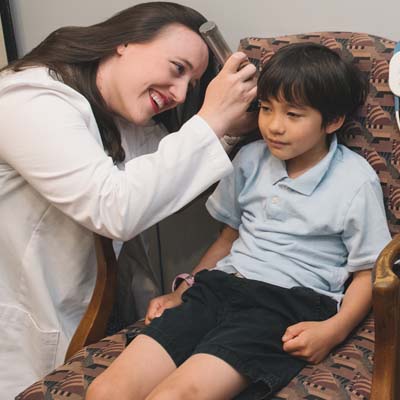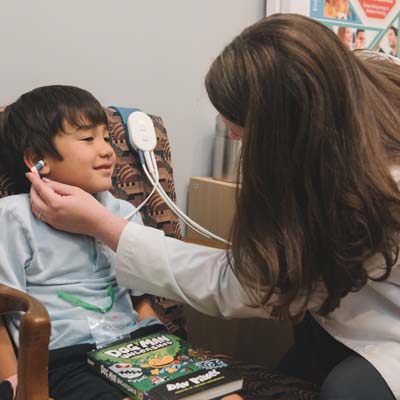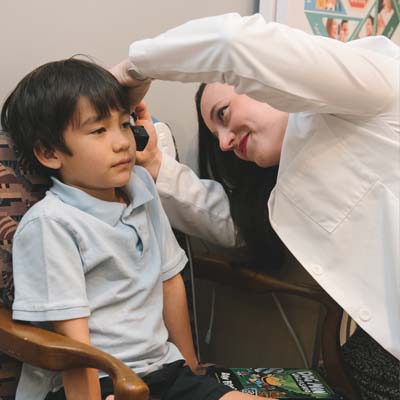APD Treatment in Durham, NC


The ability to process sound is fundamental to speech, hearing, and communications. Auditory Processing Disorder (APD) is when the ear functions perfectly, and the patient is able to hear sounds well, but is unable to quickly or accurately distinguish between sounds. In other words, APD is not a problem with hearing, but an issue with listening to and comprehending sounds. People with APD can have difficulty differentiating between words that sound similar, which often leads people to think they have a hearing problem.
While the exact cause of APD is still unknown, researchers have noted possible links between APD and premature births, head injuries, or recurring ear infections. Research is also investigating links to autism spectrum disorder, non-verbal learning disabilities, dyslexia, delayed language problems, and other health challenges.
Talk to the experts. Call us today.
Symptoms of APD
Those who have APD may:
- Seem like they have hearing loss even if their hearing is normal
- Have difficulty with reading and spelling in spite of high intelligence
- Become distracted by background noises
- Have problems following directions, especially multi-step instructions
- Ask people to repeat themselves often
- Seem confused by what is expected of them, or
- Startle easily when there are loud sounds.
Diagnosing APD
At Hearing Health Care Services PLLC, our audiologist will conduct a series of tests to determine whether you have APD, and if so, recommend a course of treatment. These hearing tests evaluate:
- Peripheral auditory system
- Binaural integration and separation
- Temporal patterning
- Auditory closure
- Auditory figure-ground discrimination
- Binaural interaction, and
- Language processing assessment.

To diagnose school-age children, a speech and language assessment by a speech-language pathologist and a psycho-educational assessment by an educational psychologist or consultant may be necessary.
Treating APD
APD is usually addressed through a program of treatments customized to the specific needs of the patient. Treatments are designed to:
- Improve access and interpretation of incoming auditory and verbal information
- Address deficit areas directly
- Learn how to maximize the use of auditory information
- Deficit-specific, formal and informal auditory training
- Frequency Modulated (FM) Systems
- Computer-assisted therapy such as Fast ForWord and Earobics
- Environmental modification
- Training of compensatory skills
- Language processing training, and
- Speech and language therapy.
Audio Processing Disorder testing is a painless procedure and is necessary for accurate diagnosis. Test results provide critical information that can be used to help patients function at their highest potential at work, school, and play.



Talk to the experts. Call us today.

